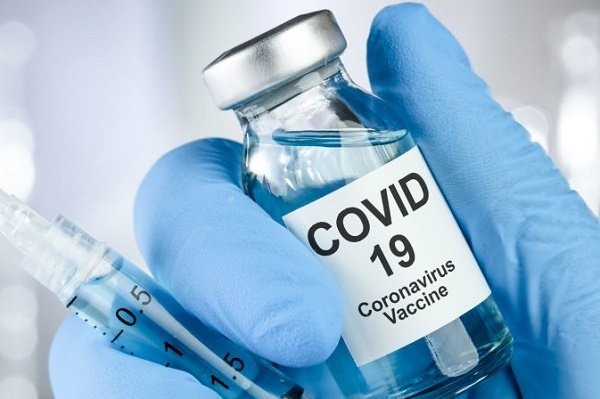Four things to expect as 4m vaccine doses arrive Nigeria today

As Nigeria takes delivery today of 4 million doses of Oxford/AstraZeneca vaccine from COVAX, a global initiative to distribute vaccines, another phase to end the pandemic will unfold.
Nigeria’s quest to suppress the virus will finally begin with the first phase of vaccination targeted at healthcare and frontline workers.
Exact dates of the rollout have not been set, but the doses coming either through the Murtala Muhammed International Airport, Lagos, or Nnamdi Azikwe International Airport, Abuja, is expected to pave the way to achieving herd immunity. Below are four things to expect:
Confidence among frontline workers
The vaccination of healthcare workers will no doubt boost their confidence as they go about discharging their duties in the frontline. Hundreds of them across the country have died from the virus due to a spike in community transmission.
A system of registration has been launched by the National Primary Health Care Development Agency (NPHCDA) to prioritise eligible people for vaccination.
Doctors in isolation centres, accident and emergency units, intensive care units, general out-patient departments, internal medical department at secondary and tertiary healthcare facilities are in the eligible bracket, according to NPHCDA.
Also included are laboratory staff members such as lab scientists, lab technicians, including those working at the Nigeria Centre for Disease Control, cleaners, porters, health assistants, and ambulance drivers.
Allocation to states will be clearer
The issue of who gets what and how much will clearer than earlier predictions of how doses will be distributed among states.
The agency has debunked a sharing formula released in January that had states receiving doses of vaccines that did not match the scale of COVID-19 prevalence or the size of the healthcare workforce confronting the pandemic.
According to the breakdown, Kano was allocated 3,557 doses; Lagos, 3,131; Katsina, 2,361; Kaduna, 2,074; Bauchi, 1,900; Oyo, 1,848; Rivers, 1,766; Jigawa, 1,712; Niger, 1,558; Ogun, 1,473; Sokoto, 1,468; Benue, 1,423; Borno, 1,416; Anambra, 1,379; Kebbi, 1,361; Zamfara, 1,336; Rivers, 1,306; Imo, 1,267; Ondo, 1,228; Akwa and Ibom, 1,161.
However, analysis by BusinessDay published January 15 showed that the allocation was out of touch with the reality of COVID-19 infection rates in various states.
Kano for instance got the highest allocation of 3,557 doses but had one of the least number of confirmed cases compared to others. The state was ninth behind Lagos, FCT, Plateau, Kaduna, Oyo, Rivers, Edo and Ogun in terms of confirmed cases and number of those currently on admission as of mid-January.
Eligibility for vaccine passport
Nigerians lucky to be vaccinated early could join the train of people eligible for the new world of ‘vaccine passport,’ the new currency for international travel.
Efforts to curb the pandemic in advance economies have begun to tilt towards adopting proof of vaccination as a condition for entry.
Sooner or later, people might have to present their evidence of vaccination, just like yellow fever proof before their passport is stamped before boarding a plane.
It is not clear if Nigeria will take a cue to demand vaccination from inbound travellers. But citizens of countries with the largest vaccine rollout and accessibility will certainly gain the most from the trend, boosting economic recovery among other things.
For instance, Israel’s effort to put its $8 billion tourism industry back on track has started with negotiation with countries that have made progress in their rollout of vaccines to create what is known as a travel bubble.
Restrictions relaxed
Should vaccination rollout succeed in the most affected states in the country and reduce the rate of infection, state governments might start to consider easing restrictions that have affected businesses.
People and businesses might launch back to normalcy and recoup the losses of 2020.
(BusinessDay)

